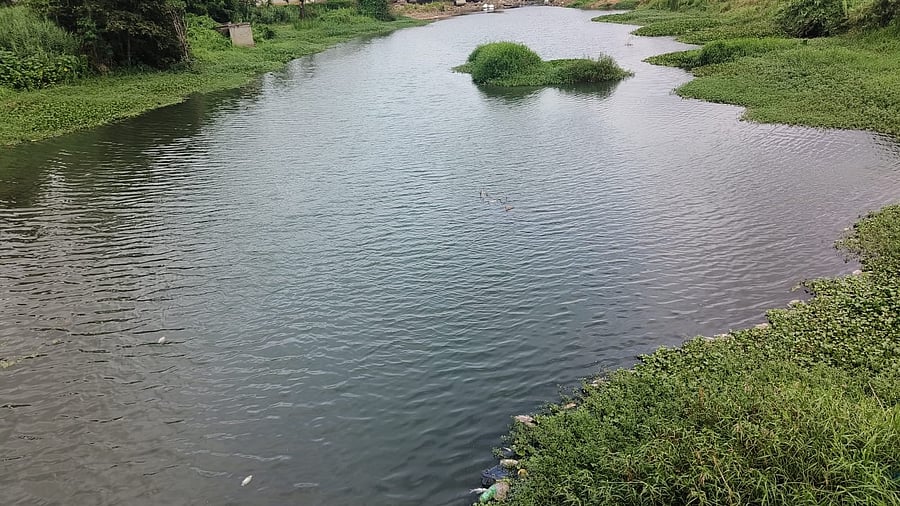
A view of the Arkavathi river in Bengaluru. The river runs along the city’s outskirts before flowing into Ramanagara district and eventually merging with the Cauvery river.
DH FILE PHOTO
Bengaluru: The rejuvenation of River Arkavathi — once a vital lifeline for Bengaluru but now a polluted and depleted stream — is back in focus.
This time, the Bengaluru Water Supply and Sewerage Board (BWSSB) has proposed a public-private partnership (PPP) model for the project.
While critics worry that such a model could prioritise profits over environmental restoration, researchers actively involved in river conservation feel sidelined from the planning process.
Last week, the BWSSB held discussions with the Infrastructure Development Corporation, Karnataka (iDECK), a transaction advisory agency, to refine the PPP framework. The project aims to restore the river from Nandi Hills to the TG Halli reservoir, covering approximately 53 km. The water board has reportedly approved the conceptual plan.
At the meeting, officials decided to conduct a survey to assess the river’s current condition.
The Arkavathi, which once flowed through 100 lakes and three reservoirs — including Hesaraghatta — began drying up in the 1990s. It now runs along Bengaluru’s outskirts before entering Ramanagara district and merging with the Cauvery river.
A senior BWSSB official stated that the project would follow models like the Clean Ganga Mission and Chennai’s Adyar River restoration initiative.
"We plan to construct sewage pipelines, treatment plants for both domestic and industrial effluents, and water harvesting structures, among other measures. This initiative aims to enhance Bengaluru’s ecology and long-term water security,” BWSSB Chairman V Ram Prasath Manohar told DH. He confirmed that the project would be implemented under the PPP model.
Revenue model & privatisation concerns
The BWSSB has also developed a revenue model for the private concessionaire, who will finance the infrastructure costs, estimated to run into hundreds of crores.
Proposed revenue streams include issuing transferable development rights (TDR) and promoting tourism-related activities.
However, concerns over public involvement and potential privatisation remain.
'Public not consulted'
Nirmala Gowda, a water activist with the Paani Earth Foundation, criticised the BWSSB for not engaging citizens who have long worked on Arkavathi’s revival.
“Why is the BWSSB not consulting the public on this PPP model?” she questioned.
She emphasised that stopping pollution at its source is the only sustainable solution for restoring the river.
“If pollution is controlled, the Arkavathi will recover on its own,” she said, highlighting areas like Doddaballapur, Chikkabanavara, and Peenya, where domestic and industrial effluents continue to flow into the river despite repeated complaints.
"The problem can be solved without private investment,” she asserted.
A source familiar with the matter suggested that the PPP model could ultimately serve as a step toward privatising the BWSSB’s core responsibilities.
"The BWSSB has the expertise to restore the river using funding from global organisations like the World Bank or the Japan International Cooperation Agency (JICA), as it has done for other projects. The government should reconsider the PPP model, given the project’s environmental sensitivity,” the source said.